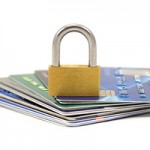 You’ve read about it. You’ve heard about it. But credit card fraud happens to other people, not to you, right? Unfortunately, According to Javelin Strategy & Research, in 2011 there were 9.64 million people who were victimized by fraud where someone used their credit card or credit card number without their authorization. If you don’t catch the fraud quickly, the debt can add up and become a real headache.
You’ve read about it. You’ve heard about it. But credit card fraud happens to other people, not to you, right? Unfortunately, According to Javelin Strategy & Research, in 2011 there were 9.64 million people who were victimized by fraud where someone used their credit card or credit card number without their authorization. If you don’t catch the fraud quickly, the debt can add up and become a real headache.
There are many reasons to review your credit card statement each month. Of course you want to track your expenses and stay on budget. However, another critical reason to review your statement in detail is to catch potentially fraudulent charges.
Here is some credit card advice to help determine if you’ve been a victim of credit card fraud.
-
Andy, a Michigan home owner noticed double utility bill payments on his credit card bill. After contacting the utility company for an explanation it was quickly clear that someone was using his credit card to pay their gas and electric bill. Turning the information over to the police, Andy learned that a clerk at his local hardware store had used his credit card number after Andy had made a purchase.
-
For example, iTunes account holders often save their credit card numbers with their online accounts for fast payment in the future. If someone hacks into your iTunes account they now have your credit card number and can go on a shopping spree. iTunes sends receipts for every purchase, yet those receipts are often sent days after the purchase was made.
It pays to stay on top of your accounts and statements. Even though there are legal protections against unauthorized card use, many banks and lenders require at least a little bit of paperwork (and time and effort on your part) before they’ll credit your account appropriately. The faster you catch credit card fraud, the easier it is to take care of.
Tags: credit card advice, credit card fraud












